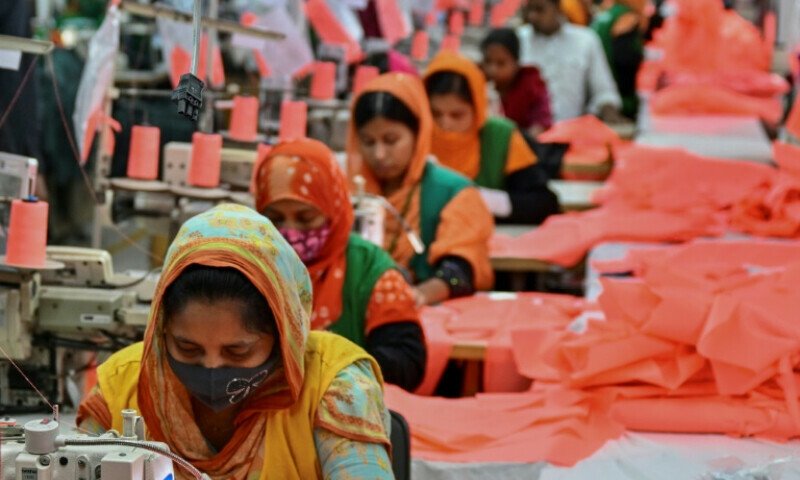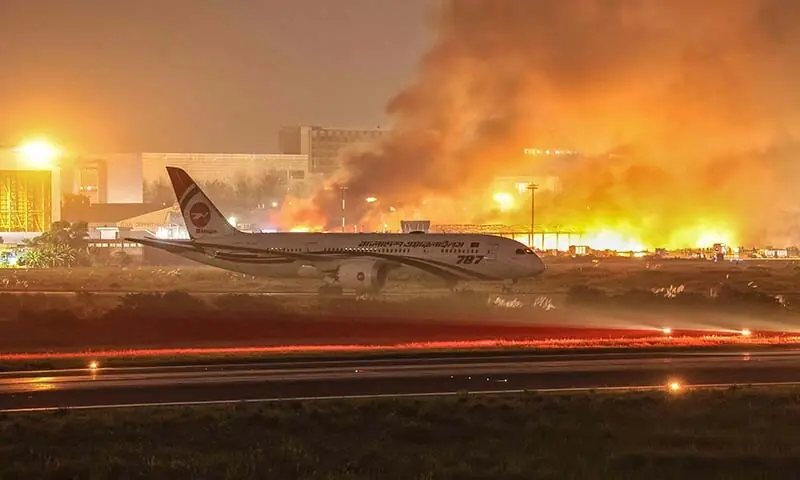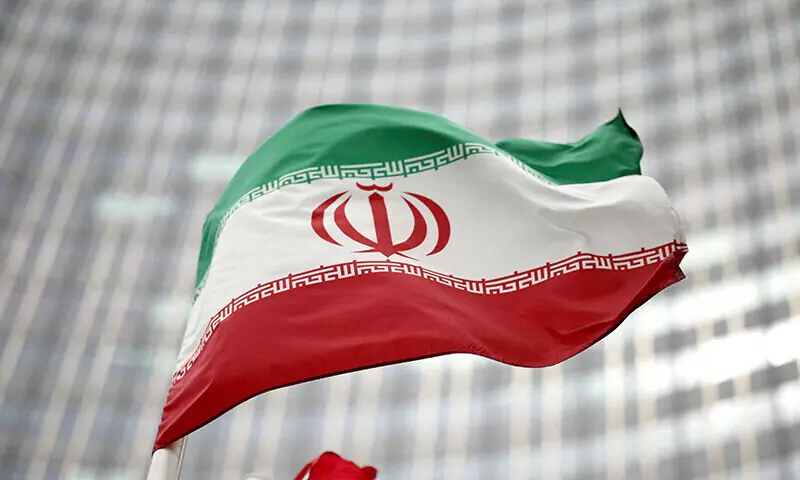In a huge Bangladesh factory packed with sewing machines, textile workers produce seemingly endless pairs of hiking pants for customers in Europe and North America.
Bangladesh’s major garment manufacturing industry, which supplies global brands, was crippled by a revolution that toppled the government last year, in which garment protesters played a major role.
While owners say business has recovered, frustrated workers say hard-won concessions have done little to change their circumstances and life remains as tough as ever.
“It’s the same kind of exploitation,” said Khatun, a 24-year-old textile worker, who asked that only her first name be used when speaking, which would jeopardize her job.
Production at the world’s second-largest garment maker was repeatedly paralyzed by months of violence, before protesters forced autocrat Sheikh Hasina to flee in August.
An interim government, headed by Nobel Peace Prize laureate Muhammad Yunus, took power.
Dozens of factories closed and tens of thousands lost their jobs.
But after a five per cent pay rise was agreed in September, the industry bounced back.
‘Operating at full capacity’
“We are doing well,” said garment factory owner SM Khaled, who runs the company Snowtex, which employs 22,000 workers.
The South Asian nation produces clothing for global brands, ranging from France’s Carrefour, Canada’s Tire, Japan’s Uniqlo, Ireland’s Primark, Sweden’s H&M and Spain’s Zara.
The garment industry accounts for about 80 percent of Bangladesh’s exports, earning $36 billion last year, falling little despite discontent over the $38 billion exported the previous year.
“I am working with at least 15 international brands and our products will be available in 50 countries,” Khaled said.
“Almost all garment factories are operating at full capacity after waves of unrest. “We are on the growth side.”
Despite challenges arising from cooling demand, Anwar Hossain, the government-appointed administrator of BGMEA, said the industry was coming back from strength to strength.
“The biggest contributor to exports was the garment sector,” Hossain said.
The garment industry recorded a 13 percent increase between July and December 2024, the period after the revolution, compared with the same period a year earlier, he said.
‘Half of my basic salary’
The workers tell a different story.
Khatun welcomed the pay rise, but said factory managers then increased already onerous demands for “almost unattainable production targets”.
Barely surviving in Ashulia, an industrial suburb of the capital Dhaka, he earns $140 a month, including overtime and benefits to support a family of four.
The $8.25 a month pay increase seems like a paltry addition.
Opening his fist, he showed a 500 taka bill, just over four dollars, all he had left after paying rent and other expenses.
“We have good facilities inside the factory, such as toilets, a canteen and water fountains,” he said. “But we don’t even have a 10-minute break while we try to meet the objectives.”
Many factory owners were close to the former ruling party.
In the days immediately following Hasina’s overthrow, several factories were damaged in retaliatory attacks.
Some owners were arrested and accused of supporting Hasina, who is in exile in India, bypassing an arrest warrant for “massacres, murders and crimes against humanity.”
“We did not receive salaries on time after the owner was arrested,” said worker Rana, who also asked not to be identified.
“Now they have offered me half of my basic salary, between 60 and 70 dollars. “I have a six-month-old son, a wife and elderly parents to support,” he added.
Hussain, who lost his job during the riots, tells a common story.
While he has since found work packing clothes, the new job means he “doesn’t benefit from the step-up treatment” while living costs have risen.
“Home rents have skyrocketed with the news of the wage increase,” he said.
‘Take more responsibility’
Taslima Akhter of Bangladesh Garment Workers’ Solidarity (BGWS), a labor rights organization, said “workers are struggling to maintain a minimum standard of living.”
Akhter said factory bosses must fight global buyers who want to maximize profits at the expense of a living wage.
“Garment (factory) owners must take on more responsibilities and learn to negotiate better with international buyers,” he said.
“This industry is not new and the problems are not impossible to solve.”








